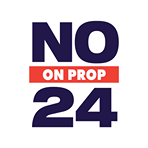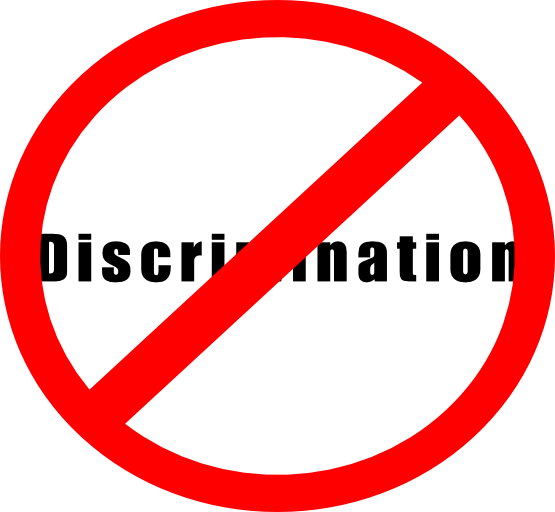
Publishings Digital Citizen
Program Areas
-
The Campaign for Commercial-Free Childhood (CCFC) and CDD filed comments with the UN’s Special Rapporteur on privacy, as part of a consultation designed to propose global safeguards for young people online. Both CCFC and CDD, along with allies in the U.S. and throughout the world, are working to advance stronger international protections for young people, especially related to their privacy and the impacts that digital marketing has on their development.
-
For Immediate Release September 24, 2020 Contact: Jeff Chester (202-494-7100) jeff@democraticmedia.org (link sends e-mail) A Step Backwards for Consumer Privacy: Why Californians Should Vote No on Proposition 24 Ventura, CA, and Washington, DC: The Center for Digital Democracy (CDD) announced today its opposition to the California Privacy Rights Act (CPRA), also known as Proposition 24, which will appear on the November 2020 California general election ballot. Prop 24 does not sufficiently strengthen Californians’ privacy and may, in fact, set a new lower and thus more dangerous standard for privacy protection in the U.S., according to its analyses. “We need strong and bold privacy legislation, not weaker standards and tinkering at the margins,” declared CDD Policy Director Katharina Kopp. “Prop 24 fails to significantly limit data uses that undermine our privacy, increase corporate manipulation and exploitation, and exacerbate racial and economic inequality. This initiative allows the much more powerful companies to set unfair terms by default. It also condones pay-for-privacy schemes, where corporations would be allowed to charge a premium (or eliminate a discount) in exchange for privacy. These schemes tend to hurt the already disadvantaged the most,” she explained. CDD intends to work with allies from the consumer and privacy communities to inform voters about Prop 24 and how best to protect their privacy. The Center for Digital Democracy is a leading nonprofit organization focused on empowering and protecting the rights of the public in the digital era.
-
The Center for Digital Democracy (CDD) announced today its opposition to the California Privacy Rights Act (CPRA), also known as Proposition 24 (link is external), which will appear on the November 2020 California general election ballot. CDD has concluded that Prop 24 does not sufficiently strengthen Californians’ privacy and may, in fact, set a new, low, and thus dangerous standard for privacy protection in the U.S. We need strong and bold privacy legislation, not weaker standards and tinkering at the margins. We need digital privacy safeguards that address the fundamental drivers of our eroding privacy, autonomy, and that redress the growing levels of racial and social inequity. We need rules that go to the heart of the data-driven business model and curtail the market incentives that have created the deplorable state of affairs we currently face. What we need are protections that significantly limit data uses that undermine our privacy, increase corporate manipulation and exploitation, and exacerbate racial and economic inequality. We need default privacy settings that limit the sharing and selling of personal information, and the use of data for targeted advertising, personalized content, and other manipulative practices. We need to ensure privacy for all and limit any pay-for-privacy schemes that entice the most vulnerable to give up their privacy. In other words, we need to limit harmful data-use practices by default, and place the interests of consumers above market imperatives by allowing only those data practices that are not harmful to individuals, groups, and society at large. Prop 24 does none of that. Specifically, Prop 24 continues on the path of a failed notice-and-choice regime, allowing the much more powerful companies to set unfair terms. Instead, privacy legislation should focus on strong default settings and data-use practices that are allowable (“permissible uses”) and prohibiting all others. These safeguards should be in place by default, rather than forcing consumers to opt out of invasive advertising. Prop 24, in contrast, does not provide effective data-use limitations; instead it continues to limit data sharing and selling via an opt-out, rather than declaring them to be impermissible uses, or at minimum requiring an opt-in for such practices. Even “sensitive data” under Prop 24 is protected only via a consumer-initiated opt-out, rather than prohibiting the use of sensitive personal data altogether. Equally concerning, Prop 24 would expand rather than limit pay-for-privacy schemes. Under the terms of Prop 24, corporations are still allowed to charge a premium (or eliminate a discount) in exchange for privacy. Consumers shouldn’t be charged higher prices or be discriminated against simply for exercising their privacy rights. This provision of Prop 24 is particularly objectionable, as it tends to harm vulnerable populations, people of color, and the elderly by creating privacy “haves” and “have-nots,” further entrenching other, existing inequities as companies would be able use personal data to profile, segment, and discriminate in a variety of areas. There are many other reasons that CDD objects to Prop 24, chief among them that this flawed measure - employs an outdated concept of “sensitive data” instead of focusing on sensitive data uses; - fails to rein in the growing power of data brokers that collect and analyze personal data from a variety of sources, including public data sets, for sale to marketers; - does not employ strong enough data minimization provisions to limit data collection, use and disclosure only to what is necessary to provide the service requested by the consumer; - undermines consumer efforts to seek enforcement of privacy rights by neglecting to provide full private right-of-action provisions; and - unnecessarily delays its protection of employee privacy.
-
Blog
Joint civil society statement: States use of digital surveillance technologies to fight pandemic must respect human rights
The COVID-19 pandemic is a global public health emergency that requires a coordinated and large-scale response by governments worldwide. However, States’ efforts to contain the virus must not be used as a cover to usher in a new era of greatly expanded systems of invasive digital surveillance.We, the undersigned organizations, urge governments to show leadership in tackling the pandemic in a way that ensures that the use of digital technologies to track and monitor individuals and populations is carried out strictly in line with human rights.Technology can and should play an important role during this effort to save lives, such as to spread public health messages and increase access to health care. However, an increase in state digital surveillance powers, such as obtaining access to mobile phone location data, threatens privacy, freedom of expression and freedom of association, in ways that could violate rights and degrade trust in public authorities – undermining the effectiveness of any public health response. Such measures also pose a risk of discrimination and may disproportionately harm already marginalized communities.These are extraordinary times, but human rights law still applies. Indeed, the human rights framework is designed to ensure that different rights can be carefully balanced to protect individuals and wider societies. States cannot simply disregard rights such as privacy and freedom of expression in the name of tackling a public health crisis. On the contrary, protecting human rights also promotes public health. Now more than ever, governments must rigorously ensure that any restrictions to these rights is in line with long-established human rights safeguards.This crisis offers an opportunity to demonstrate our shared humanity. We can make extraordinary efforts to fight this pandemic that are consistent with human rights standards and the rule of law. The decisions that governments make now to confront the pandemic will shape what the world looks like in the future.We call on all governments not to respond to the COVID-19 pandemic with increased digital surveillance unless the following conditions are met:Surveillance measures adopted to address the pandemic must be lawful, necessary and proportionate. They must be provided for by law and must be justified by legitimate public health objectives, as determined by the appropriate public health authorities, and be proportionate to those needs. Governments must be transparent about the measures they are taking so that they can be scrutinized and if appropriate later modified, retracted, or overturned. We cannot allow the COVID-19 pandemic to serve as an excuse for indiscriminate mass surveillance.If governments expand monitoring and surveillance powers then such powers must be time-bound, and only continue for as long as necessary to address the current pandemic. We cannot allow the COVID-19 pandemic to serve as an excuse for indefinite surveillance.States must ensure that increased collection, retention, and aggregation of personal data, including health data, is only used for the purposes of responding to the COVID-19 pandemic. Data collected, retained, and aggregated to respond to the pandemic must be limited in scope, time-bound in relation to the pandemic and must not be used for commercial or any other purposes. We cannot allow the COVID-19 pandemic to serve as an excuse to gut individual’s right to privacy.Governments must take every effort to protect people’s data, including ensuring sufficient security of any personal data collected and of any devices, applications, networks, or services involved in collection, transmission, processing, and storage. Any claims that data is anonymous must be based on evidence and supported with sufficient information regarding how it has been anonymized. We cannot allow attempts to respond to this pandemic to be used as justification for compromising people’s digital safety.Any use of digital surveillance technologies in responding to COVID-19, including big data and artificial intelligence systems, must address the risk that these tools will facilitate discrimination and other rights abuses against racial minorities, people living in poverty, and other marginalized populations, whose needs and lived realities may be obscured or misrepresented in large datasets. We cannot allow the COVID-19 pandemic to further increase the gap in the enjoyment of human rights between different groups in society.If governments enter into data sharing agreements with other public or private sector entities, they must be based on law, and the existence of these agreements and information necessary to assess their impact on privacy and human rights must be publicly disclosed – in writing, with sunset clauses, public oversight and other safeguards by default. Businesses involved in efforts by governments to tackle COVID-19 must undertake due diligence to ensure they respect human rights, and ensure any intervention is firewalled from other business and commercial interests. We cannot allow the COVID-19 pandemic to serve as an excuse for keeping people in the dark about what information their governments are gathering and sharing with third parties.Any response must incorporate accountability protections and safeguards against abuse. Increased surveillance efforts related to COVID-19 should not fall under the domain of security or intelligence agencies and must be subject to effective oversight by appropriate independent bodies. Further, individuals must be given the opportunity to know about and challenge any COVID-19 related measures to collect, aggregate, and retain, and use data. Individuals who have been subjected to surveillance must have access to effective remedies.COVID-19 related responses that include data collection efforts should include means for free, active, and meaningful participation of relevant stakeholders, in particular experts in the public health sector and the most marginalized population groups.Signatories:7amleh – Arab Center for Social Media AdvancementAccess NowAfrican Declaration on Internet Rights and Freedoms CoalitionAI NowAlgorithm WatchAlternatif BilisimAmnesty InternationalApTIARTICLE 19Asociación para una Ciudadanía Participativa, ACI ParticipaAssociation for Progressive Communications (APC)ASUTIC, SenegalAthan - Freedom of Expression Activist OrganizationAustralian Privacy FoundationBarracón DigitalBig Brother WatchBits of FreedomCenter for Advancement of Rights and Democracy (CARD)Center for Digital DemocracyCenter for Economic JusticeCentro De Estudios Constitucionales y de Derechos Humanos de RosarioChaos Computer Club - CCCCitizen D / Državljan DCIVICUSCivil Liberties Union for EuropeCódigoSurCoding RightsColetivo Brasil de Comunicação SocialCollaboration on International ICT Policy for East and Southern Africa (CIPESA)Comité por la Libre Expresión (C-Libre)Committee to Protect JournalistsConsumer ActionConsumer Federation of AmericaCooperativa Tierra ComúnCreative Commons UruguayD3 - Defesa dos Direitos DigitaisData Privacy BrasilDemocratic Transition and Human Rights Support Center "DAAM"Derechos DigitalesDigital Rights Lawyers Initiative (DRLI)Digital Rights WatchDigital Security Lab UkraineDigitalcourageEPICepicenter.worksEuropean Digital Rights - EDRiFitugFoundation for Information Policy ResearchFoundation for Media AlternativesFundación Acceso (Centroamérica)Fundación Ciudadanía y Desarrollo, EcuadorFundación Datos ProtegidosFundación Internet BoliviaFundación Taigüey, República DominicanaFundación Vía LibreHermes CenterHiperderechoHomo DigitalisHuman Rights WatchHungarian Civil Liberties UnionImpACT International for Human Rights PoliciesIndex on CensorshipInitiative für NetzfreiheitInnovation for Change - Middle East and North AfricaInternational Commission of JuristsInternational Service for Human Rights (ISHR)Intervozes - Coletivo Brasil de Comunicação SocialIpandetecIPPFIrish Council for Civil Liberties (ICCL)IT-Political Association of DenmarkIuridicum Remedium z.s. (IURE)KarismaLa Quadrature du NetLiberia Information Technology Student UnionLibertyLuchadorasMajal.orgMasaar "Community for Technology and Law"Media Rights Agenda (Nigeria)MENA Rights GroupMetamorphosis FoundationNew America's Open Technology InstituteObservacomOpen Data InstituteOpen Rights GroupOpenMediaOutRight Action InternationalPangeaPanoptykon FoundationParadigm Initiative (PIN)PEN InternationalPrivacy InternationalPublic CitizenPublic KnowledgeR3D: Red en Defensa de los Derechos DigitalesRedesAyudaSHARE FoundationSkyline International for Human RightsSursiendoSwedish Consumers’ AssociationTahrir Institute for Middle East Policy (TIMEP)Tech InquiryTechHerNGTEDICThe Bachchao ProjectUnwanted Witness, UgandaUsuarios DigitalesWITNESSWorld Wide Web Foundation -
Blog
Platforms, Privacy, Pandemic and Data Profiteering: The COVID-19 crisis further fuels unaccountable growth from the digital tech and media industries
By Jeffrey Chester The COVID-19 pandemic is a profound global public health crisis that requires our upmost attention: to stem its deadly tide and rebuild the global health system so we do not experience such a dire situation in the future. It also demands that we ensure the U.S. has a digital media system that is democratic, accountable, and one that both provides public services and protects privacy. The virus is profoundly accelerating our reliance on digital media worldwide, ushering (link is external) in “a new landscape in terms of how shoppers are buying and how they are behaving online and offline.” Leading platforms—Amazon, Facebook and Google—as well as many major ecommerce and social media sites, video streaming services, gaming apps, and the like—are witnessing a flood of people attempting to research health concerns, order groceries and supplies, view entertainment and engage in communication with friends and family. According to a marketing industry report (link is external), “nearly 90% of consumers have changed their behavior because of COVID-19.” More data (link is external) about our health concerns, kids, financial status, products we buy and more are flowing into the databases of the leading digital media companies. The pandemic will further strengthen their power as they leverage all the additional personal information they are currently capturing as a consequence of the pandemic. This also poses a further threat to the privacy of Americans who are especially dependent on online services if they are to survive. The pandemic is accelerating societal changes (link is external) in our relationship to the Internet. For example, marketers predict that we are witnessing the emergence of an experience they call the “fortress home”—as “consumer psychology shifts into an extreme form of cocooning.” The move to online buying via ecommerce—versus going to a physical store—will become an even more dominant consumer behavior. So, too, will in-home media consumption increase, especially the reliance on streaming (“OTT”) video. Marketers are closely examining all these pandemic-related developments using a global lens—since the digital behaviors of all consumers—from China to the U.S.—have so many commonalities. For example, Nielsen has identified six (link is external) “consumer behavior thresholds” that reveal virus-influenced consumer buying behaviors, such as “quarantined living preparation” and “restricted living.” A host of sites are now regularly reporting how the pandemic impacts the public, and what it means for marketing and major brands. See, for example, Ipsos (link is external), Comscore (link is external), Nielsen (link is external), Kantar (link is external), and the Advertising Research Foundation (ARF (link is external)). In addition to the expanded market power of the giants, there are also growing threats to our privacy from surveillance by both government (link is external) and the commercial sector. Marketers are touting how all the real-time geolocation data that is continuously mined from our mobile devices, wearables (link is external) and “apps” can help public health experts better respond to the virus and similar threats. At a recent (link is external) Advertising Research Foundation townhall on the virus it was noted that “the location-based data that brand stewards have found useful in recent years to deliver right-time/right-place messages has ‘gone from being useful that helps businesses sell a little bit more’ to truly being a community and public-health tool.” Marketers will claim that they have to track all our moves because it’s in the national interest in order to sanction the rapid expansion of geo-surveillance (link is external) in all areas of our lives. They are positioning themselves to be politically rewarded for their work on the pandemic, hoping it will immunize them from the growing criticism about their monopolistic and anti-consumer privacy behaviors. Amazon, Facebook, Google, Snapchat and various “Big Data” digital marketing companies announced (link is external), for example, a COVID-19 initiative with the White House and CDC. Brokered by the Ad Council, it will unleash various data-profiling technologies, influencer marketing, and powerful consumer targeting engines to ensure Americans receive information about the virus. (At the same time, brands are worried about having their content appear alongside information about the coronavirus, adopting new (link is external) “brand safety” tools that can “blacklist” news and other online sites. This means that the funding for journalism and public safety information becomes threatened (link is external) because advertisers wish to place their own interests first.) But the tactics (link is external) now sanctioned by the White House are the exact same ones that must be addressed in any legislation that effectively protects our privacy online. We believe that the leading online companies should not be permitted to excessively enrich themselves during this moment by gathering even more information on the public. They will mine this information for insights that enable them to better understand our private health needs and financial status. They will know more about the online behaviors of our children, grandparents and many others. Congress should enact protections that ensure that the data gathered during this unprecedented public health emergency are limited in how they can be used. It should also examine how the pandemic is furthering the market power of a handful of platforms and ecommerce companies, to ensure there is a fair marketplace accessible to the public. It’s also evident there must be free or inexpensively priced broadband for all. How well we address the role of the large online companies during this period will help determine our ability to respond to future crises, as well as the impact of these companies on our democracy. -
Blog
Digital Marketing, Personal Information and Political Campaigns: Advocates should press for policy reforms and not leave it to the “experts”
A new report (link is external) on how political marketing insiders and platforms such as Facebook view the “ethical” issues raised by the role of digital marketing in elections illustrates why advocates and others concerned about election integrity should make this issue a public-policy priority. We cannot afford to leave it in the hands of “Politech” firms and political campaign professionals, who appear unable to acknowledge the consequences to democracy of their unfettered use of powerful data-driven online-marketing applications. “Digital Political Ethics: Aligning Principles with Practice” reports on a series of conversations and a two-day meeting last October that included representatives of firms (such as Blue State, Targeted Victory, WPA Intelligence, and Revolution Messaging) that work either for Democrats or Republicans, as well as officials from both Facebook and Twitter. The goal of the project was to “identify areas of agreement among key stakeholders concerning ethical principles and best practices in the conduct of digital campaigning in the U.S.” Perhaps it should not be a surprise that this group of people appears to be incapable of critically examining (or even candidly assessing) all of the problems connected with the role of digital marketing in political campaigns. Missing from the report is any real concern about how today’s electoral process takes advantage of the absence of any meaningful privacy safeguards in the U.S. A vast commercial surveillance apparatus that has no bounds has been established. This same system that is used to market goods and services, and which is driven by data-brokers, marketing clouds, (link is external) real-time ad-decision engines, geolocation (link is external) identification and other AI-based (link is external)technologies—along with the clout of leading platforms and publishers—is now also used for political purposes. All of us are tracked and profiled 24/7, including where we go and what we do—with little location privacy anymore. Political insiders and data ad companies such as Facebook, however, are unwilling to confront the problem of this loss of privacy, given how valuable all this personal data is to their business model or political goal. Another concern is that these insiders now view digital marketing as a normative, business-as-usual process—and nothing out of the ordinary. But anyone who knows how the system operates should be deeply concerned about the nontransparent and often far-reaching ways digital marketing is constructed to influence (link is external) our decision-making and behaviors, including at emotional (link is external) and subconscious (link is external) levels. The report demonstrates that campaign officials have largely accepted as reasonable the various invasive and manipulative technologies and techniques that the ad-tech industry has developed over the past decade. Perhaps these officials are simply being pragmatic. But society cannot afford such a cynical position. Today’s political advertising is not yesterday’s TV commercial—nor is it purely an effort to “microtarget” sympathetic market segments. Today’s digital marketing apparatus follows all of us continuously, Democrats, Republicans, and independents alike. The marketing ecosystem (link is external) is finely tuned to learn how we react, transforming itself depending on those reactions, and making decisions about us in milliseconds in order to use—and refine—various tactics to influence us, entirely including new ad formats, each tested and measured to have us think and behave one way or another. And this process is largely invisible to voters, regulators and the news media. But for the insiders, microtargeting helps get the vote out and encourages participation. Nothing much is said about what happened in the 2016 U.S. election, when some political marketers sought to suppress the vote among communities of color, while others engaged is disinformation. Some of these officials now propose that political campaigns should be awarded a digital “right of way” that would guarantee them unfettered access to Facebook, Google and other sites, as well as ensure favorable terms and support. This is partly in response to the recent and much-needed reforms adopted by Twitter (link is external)and Google (link is external)that either eliminate or restrict how political campaigns can use their platforms, which many in the politech industry dislike. Some campaign officials see FCC (link is external) rules regulating TV ads for political ads as an appropriate model to build policies for digital campaigning. That notion should be alarming to those who care about the role that money plays in politics, let alone the nature of today’s politics (as well as those who know the myriad failures of the FCC over the decades). The U.S. needs to develop a public policy for digital data and advertising that places the interests of the voter and democracy before that of political campaigns. Such a policy should include protecting the personal information of voters; limiting deceptive and manipulative ad practices (such as lookalike (link is external) modeling); as well as prohibiting those contemporary ad-tech practices (e.g., algorithmic based real-time programmatic (link is external) ad systems) that can unfairly influence election outcomes. Also missing from the discussion is the impact of the never-ending expansion of “deep-personalization (link is external)” digital marketing applications designed to influence and shift consumer behavior more effectively. The use of biodata, emotion recognition (link is external), and other forms of what’s being called “precision data”—combined with a vast expansion of always-on sensors operating in an Internet of Things world—will provide political groups with even more ways to help transform electoral outcomes. If civil society doesn’t take the lead in reforming this system, powerful insiders who have their own conflicts of interests will be able to shape the future of democratic decision-making in the U.S. We cannot afford to leave it to the insiders to decide what is best for our democracy. -
CDD, EPIC, USPIRG Opposition to Google/Doubleclick "Big Data" Merger
2007 FTC filings example of groups calling for antitrust, privacy and other safeguards for digital marketplace
Working closely with the Electronic Privacy Information Center (epic.org) and US PIRG, CDD led a campaign to oppose (link is external) the acquisition of Doubleclick by Google. CDD opposed (link is external) the deal on privacy, consumer protection and competiton grounds. We all foresaw what would happen if Google was allowed to swallow a leading digital marketing giant--more data collection, industry consolidation, weakening of consumer and privacy rights. It all happened of course, in part because the FTC hasn't ever been able to deal with the marketplace. Here are two of the filings done in this case.



